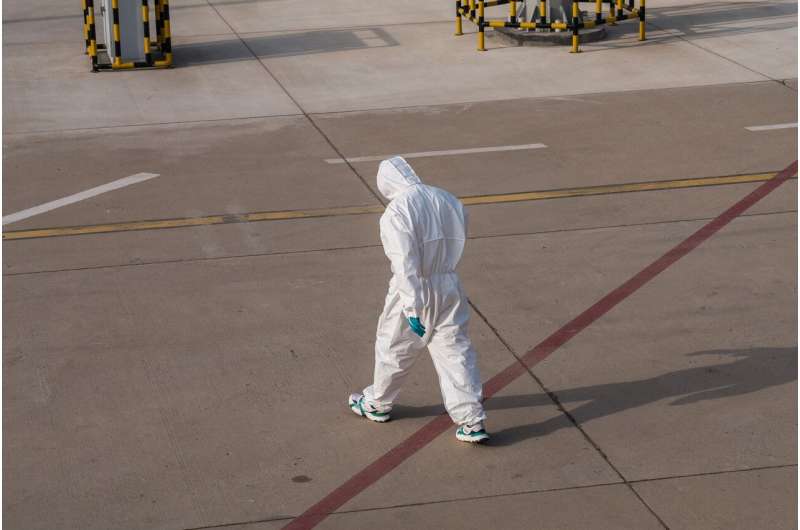Home » Health News »
Study explores dishonesty during a pandemic

People who are more worried about the risk to their health during a pandemic may be more likely to lie to obtain a vaccination earlier, according to research from the University of Southampton.
In contrast, the same piece of research suggests that those with greater financial worries, brought on by new lockdown restrictions, were no more likely to make a fraudulent claim for financial support than those who had a lower perceived risk to their finances.
The research, published in Risk Analysis, sheds new light on the motivations of people who acted dishonestly during the COVID-19 pandemic and offers useful insights to reduce such behavior in a future pandemic.
Striking a balance in public health messaging
Researchers from the University of Southampton presented participants with several hypothetical future pandemic scenarios, with varying degrees of health risk. Participants were then asked to complete a questionnaire, like that used by the NHS in 2021 to prioritize vaccinations. They were also asked how worried they were about the health risks of the pandemic.
“Interestingly, it was the perception of risk, rather than the objective risk itself, that was associated with greater dishonesty in the questionnaire responses,” says Associate Professor Dr. Ian Dawson, one of the co-authors of the research. “This suggests policy makers need to strike a careful balance between raising public awareness enough to motivate protective behaviors, like social distancing, but not raising fear levels to heights where people may be motivated to act unethically to protect themselves.”
The researchers also found that older participants were more likely to be dishonest in the vaccine questionnaire than younger ones.
Money worries not linked to furlough fraud
In a separate study, participants were asked to imagine themselves as small business owners whose income was threaten by new lockdown measures. They were asked to complete a financial support eligibility questionnaire, based on the COVID-19 furlough scheme. They were also asked how worried they were about the risk to their livelihoods. Here there was no association between perception of financial risk and dishonest behavior.
Co-author Professor Yaniv Hanoch says, “The results suggest that risk to health may be a more powerful driver than risk to finances in motivating dishonest behavior.
“It appears that the motivation behind the widespread fraud seen during the COVID-19 pandemic probably wasn’t due to financial worry, but other factors such as greed and opportunism.”
Communicating risk of detection
Researchers also looked at how the risk of being found out influenced dishonest behavior. They found that a higher risk of detection (both actual and perceived) was associated with more honest financial support questionnaire responses.
Professor Yaniv Hanoch added, “We recommend that in future pandemics, and other crises, policy makers should explicitly communicate the probability of fraud detection, and make sure that this probability is sufficiently high.”
More information:
Ian G. J. Dawson et al, The role of perceived risk on dishonest decision making during a pandemic, Risk Analysis (2022). DOI: 10.1111/risa.14082
Journal information:
Risk Analysis
Source: Read Full Article



